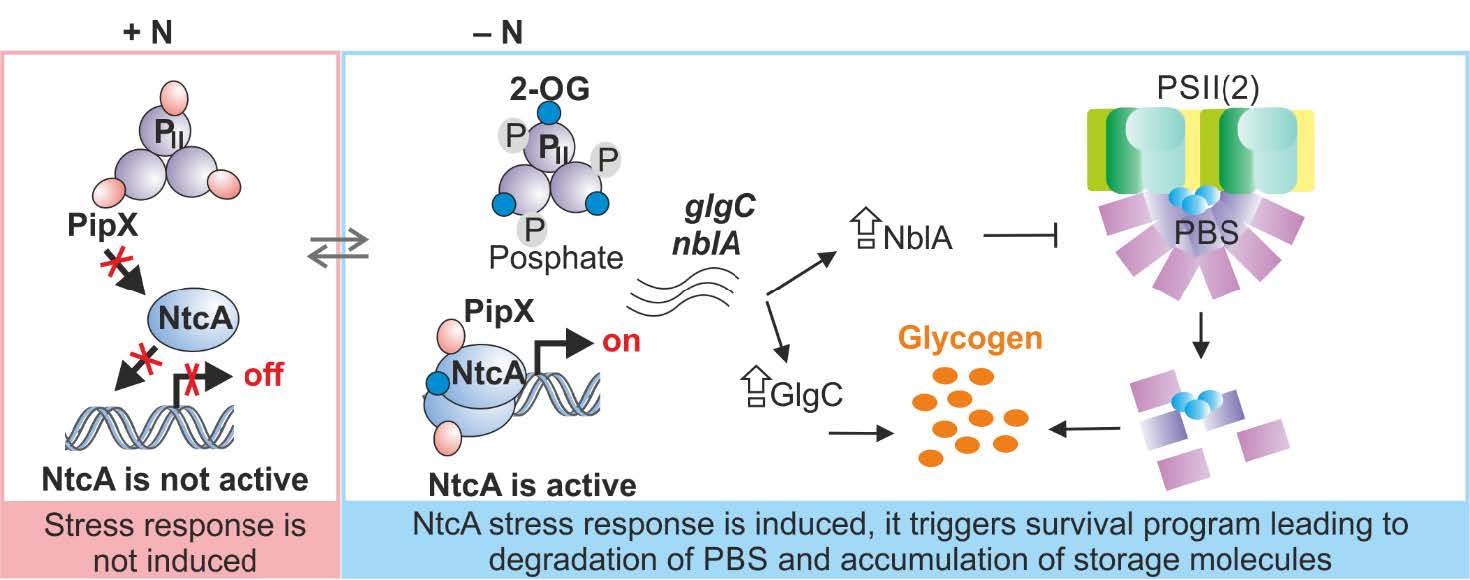Laboratory of Photosynthesis
Josef Komenda`s group
Biogenesis of Photosystem II
Research Projects
Reprogramming the NtcA Global Regulatory Pathway in Cyanobacteria
Funded by the Grant Agency of the Czech Republic, 2025 - 2027
Principal investigator: Vendula Krynická, Ph.D.
Global regulatory networks in cyanobacteria, such as NtcA, are promising targets for green biotechnology. The NtcA pathway represents an inbuilt metabolic program that responds to nitrogen deficiency leading to accumulation of storage polymers. A recent research has revealed the critical role of the FtsH1/3 proteolytic complex in activating NtcA's transcriptional response to nitrogen limitation. However, the exact mechanism of this activation remains unknown. In this project, we aim to induce the NtcA response under non-stress conditions to avoid inhibiting photosynthesis and thereby enhancing accumulation of storage carbohydrates in Synechocystis PCC 6803. This will be accomplished by designing a constitutively active NtcA-type factor using synthetic biology tools and in silico calculations. We will complement this approach by modulating the level of the FtsH1/3 complex to enhance the response. The impact of this reprogramming on overall cellular metabolism, including the synthesis of storage compounds, will be evaluated using state-of-the-art methods, such as powerful omics analyses.
The aims of the project:
1. Manipulating the NtcA global regulatory pathway to induce the NtcA response under nutrient sufficiency.
2. To reveal the role of the FtsH/3 complex in regulation of the NtcA stress response
 |
|
Regulation of the NtcA regulon under nitrogen repletion (+N) and nitrogen depletion (−N). Under +N conditions, the level of 2-oxo-glutarate (2-OG) is low, PipX protein is bound to PII, NtcA has a low affinity to cognate promoters, and the NtcA regulon is not expressed. Under −N conditions, the level of 2-OG is high, 2-OG binds to PII and NtcA. PII is phosphorylated (P), PipX is released from PII binding, and forms a complex with 2-OG-NtcA. NtcA-2OG-PipX activates the expression of the NtcA regulon, including NblA, a key factor of PBS degradation, and enzymes for glycogen synthesis such as GlgC.
|